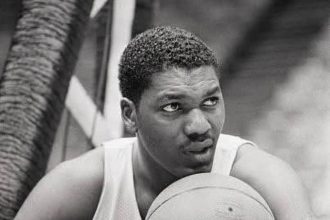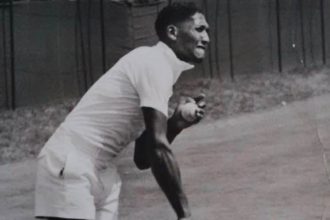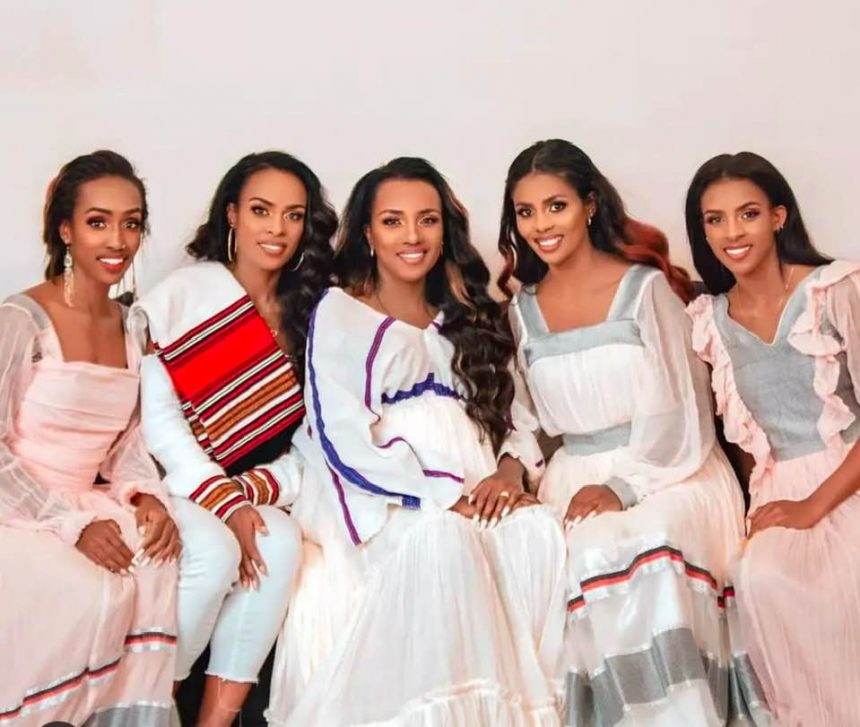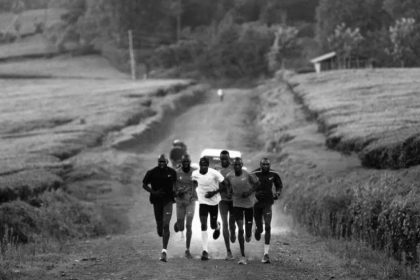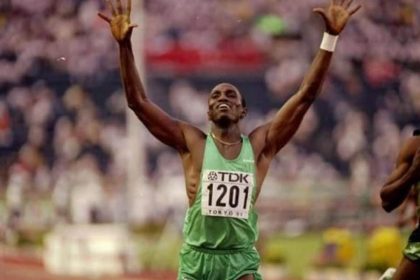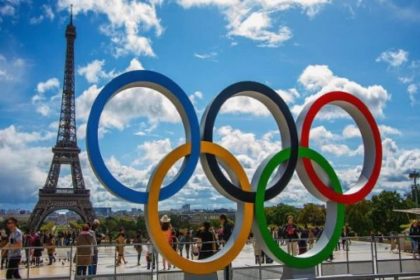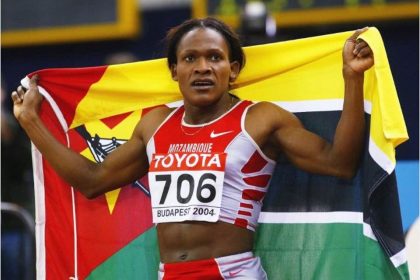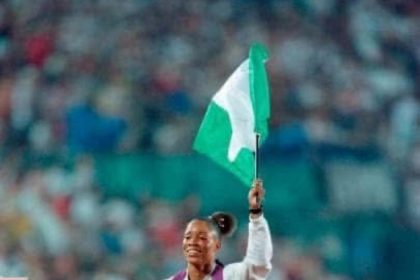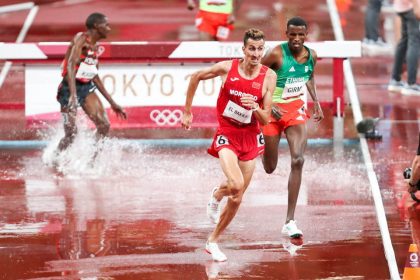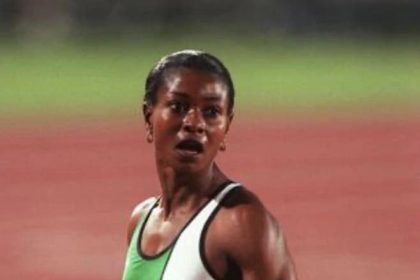Ancient historians like Flavius Josephus and Tacitus mentioned the great Kingdom of Sheba (Saba), generally agreed to be the modern-day Eritrea and Ethiopia which are parts of the Horn of Africa. This Kingdom has never lacked distinguished and elegant women in history.
Makueda the Queen of Sheba (Saba) in Ethiopian legend has been mentioned in such early historical manuscripts to have travelled by the ships of Ophir as early as circa 970 BC to visit biblical King Solomon of Israel in her beauty, elegance and glory. The stories are immortalised in the Ethiopian holy book – the Kebra Nagast. She also appears in many Turkish and Persian paintings and in Kabbalistic treatises, so this woman of fame, power and glamour must have been truly international. From those eras to this modern age the sizzling beauties from Ethiopia have not still ceased to be in the international spotlight.
Evidently, beauty and talent are combination of attributes that have never been overlooked in scholarly discourses by both ancient writers and scholars of contemporary ages.
The Dibaba sisters are a combination of beauty and speed on the track which has earned them the bragging rights of the world’s fastest and most beautiful family in history. These Ethiopian middle-distance runners comprising Tirunesh, Genzebe and Ejegayehu are the only siblings in history to hold concurrent World Records and have four Olympic gold medals, two silver medals, three bronze medals, and fifteen world championships titles in their names.
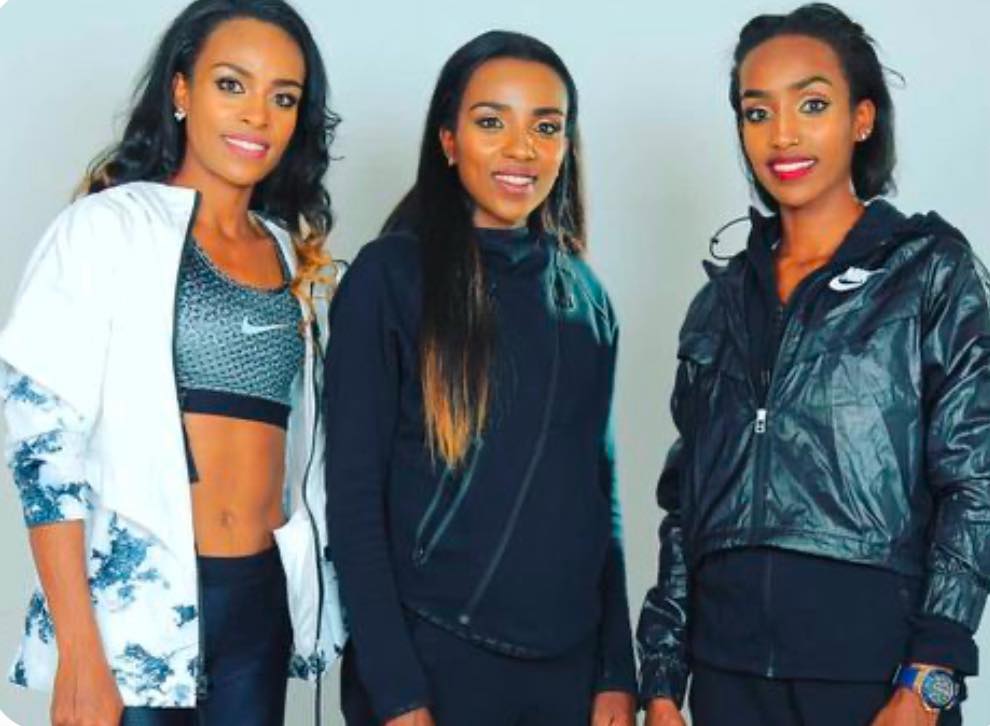
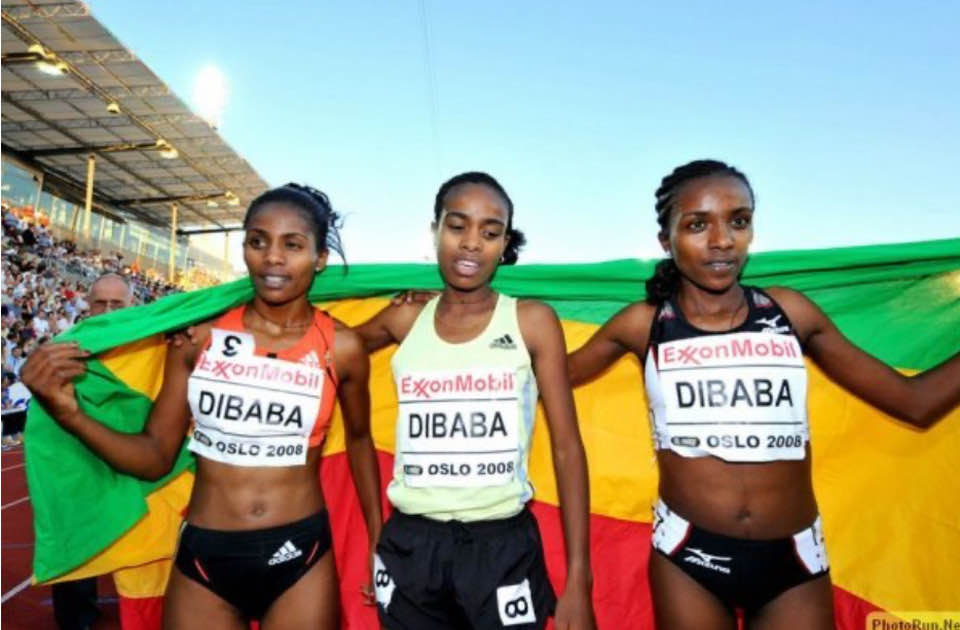
Their arresting beauty and accomplishments on the track, make them highly inspirational in their country and in women’s sports globally.
The Dibaba sisters were raised in a tiny village called Bekoji a part of the Oromo ethnic group of the high altitude Arsi province of Ethiopia, It’s 200km towards the southwest of Addis Ababa, the nation’s capital. They grew up in a tukul, also known as a round mud hut, without electricity together with their peasant farmer parents, tending cows and growing grains with crude agricultural implements.
Bekoji is also known as the home town of many other famous Ethiopian athletes like their cousin Derartu Tulu, Fatuma Roba, Tiki Gelana, Mestawet Tufa, the Bekele brothers (Kenenisa and Tariku) who all made their marks at the biggest stage.
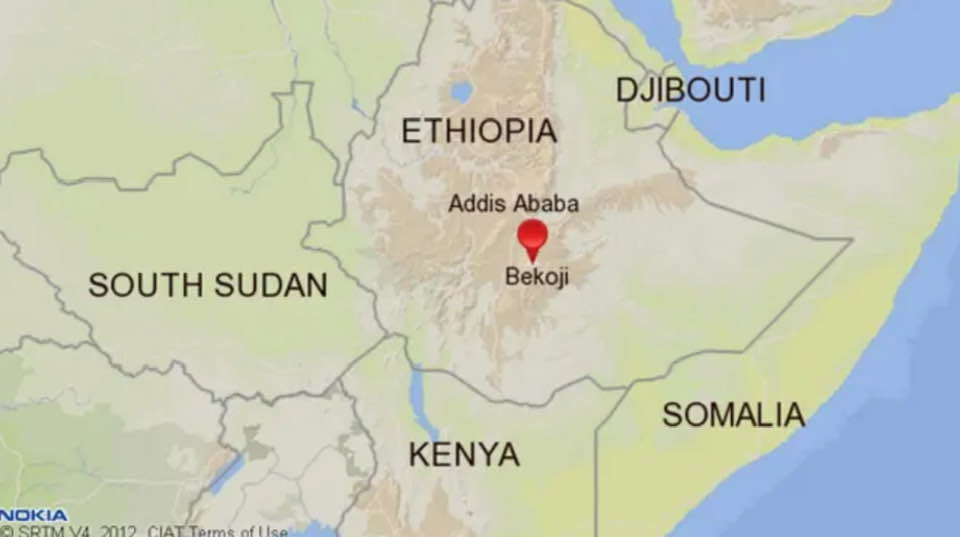
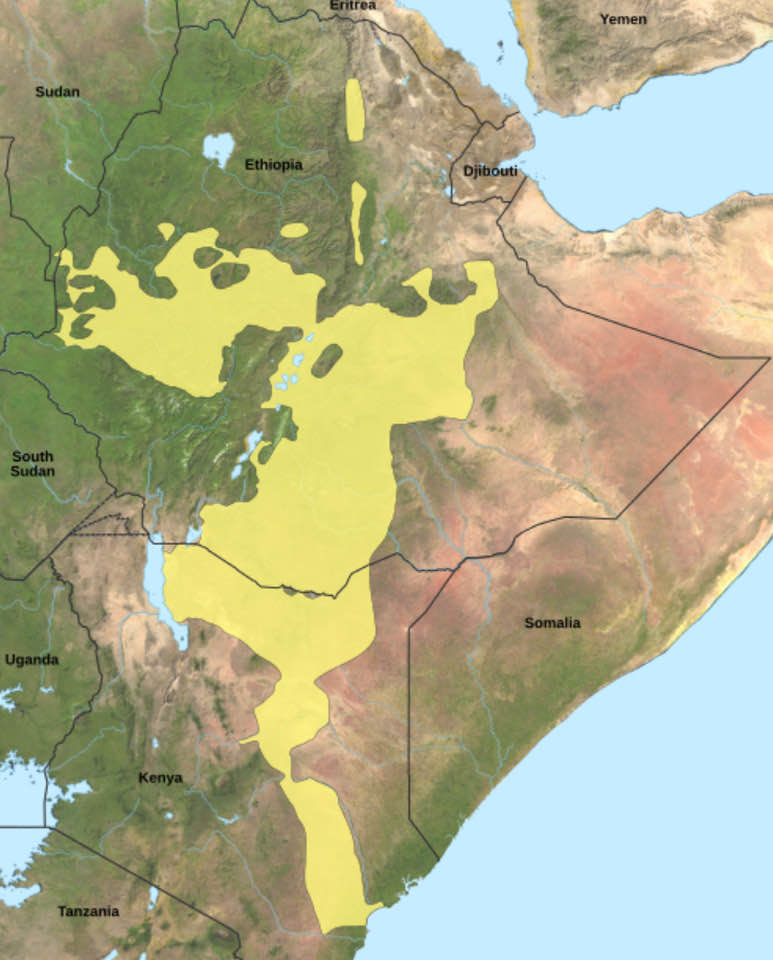
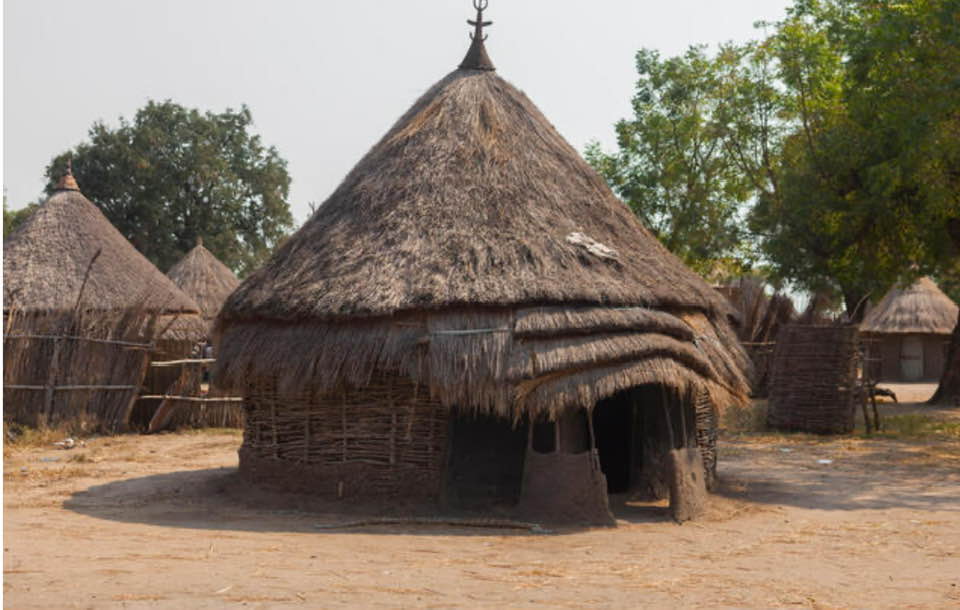
The Arsi people have long been known to be bearers of an extraordinary heritage of the art of endurance racing. For instance Haile Gebre Selassie who is regarded universally as the greatest distance runner of all times was born in this same province of Arsi in Central Ethiopia, a fertile region in the central Ethiopian plateau.
Inspired by her cousin Derartu Tulu – the first Ethiopian and African woman to win an Olympic gold medal, the eldest of the sisters, Ejegayehu Dibaba born on 21 March 1982, as a trailblazer won the 10,000m silver medal at the 2004 Athens Olympic Games. She also claimed 5000m and 10,000m bronze medals at the 2005 World Championships and was the 2003 Afro-Asian Games and All-Africa Games champion in the 10,000m.
Tirunesh Dibaba is clearly the most successful of them all, she made history at the 2008 Beijing Games, by becoming the first woman to win gold medals in the 5000m and 10,000m at the same Olympics. She did the 10,000m title back-to-back by winning the events’ gold four years later at London 2012, thus cementing her place in history as the first runner to accomplish such feat at two consecutive Olympic Games. ‘Baby-faced destroyer’ (as she is fondly called by her admirers globally) was also the 5000m outdoor WR holder until 2020, when compatriot Letesenbet Gidey broke the record.

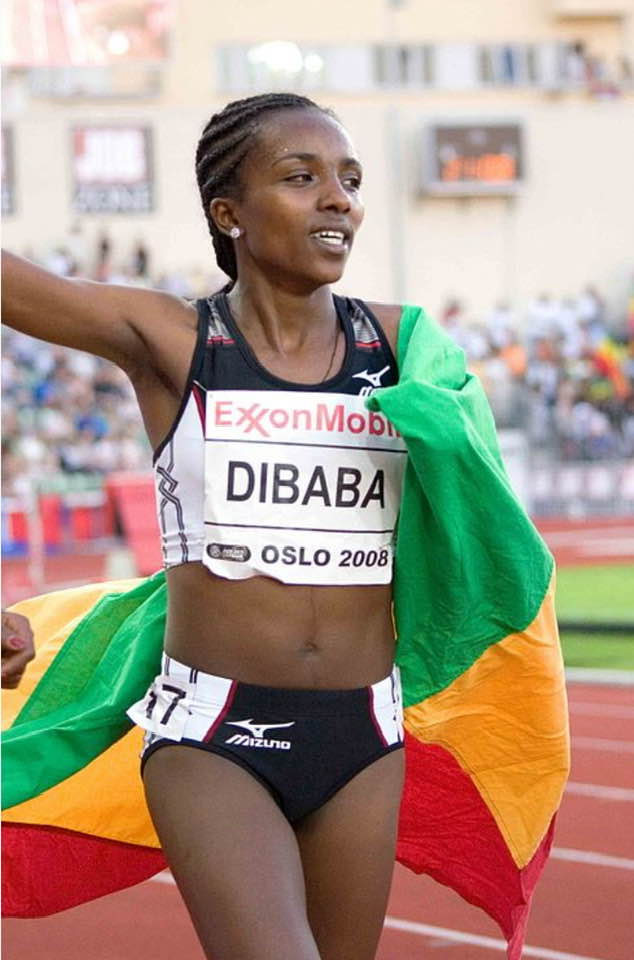
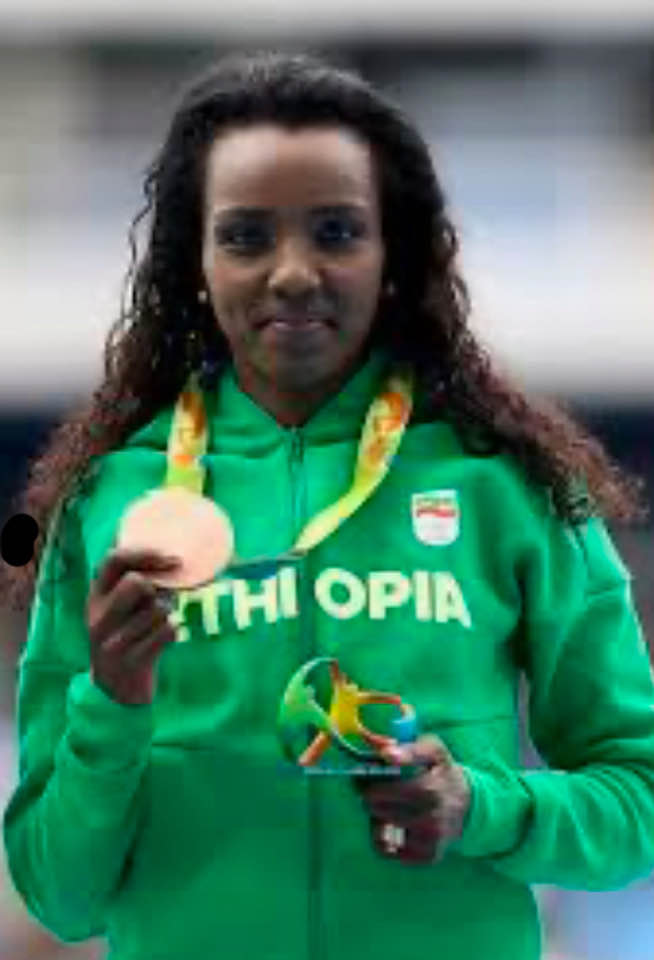
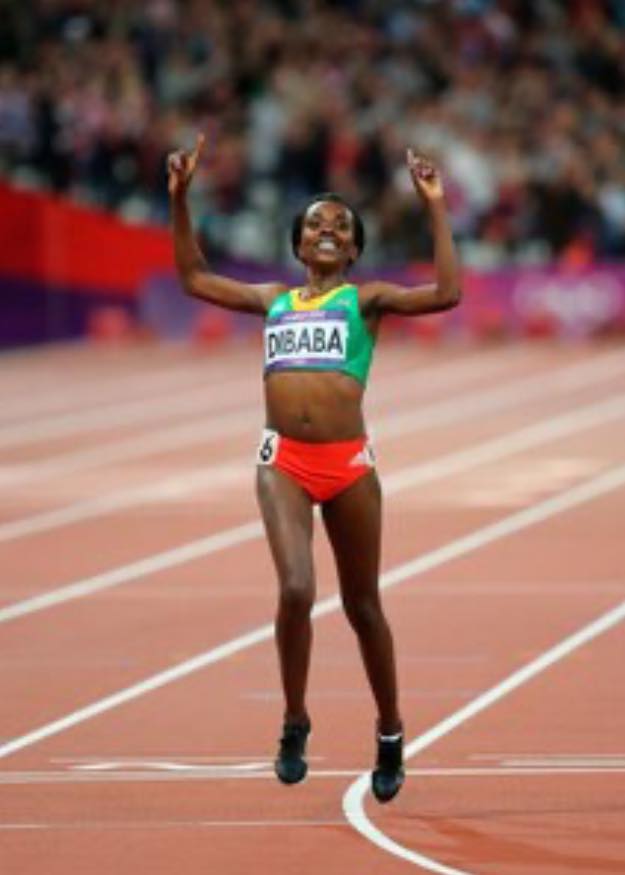
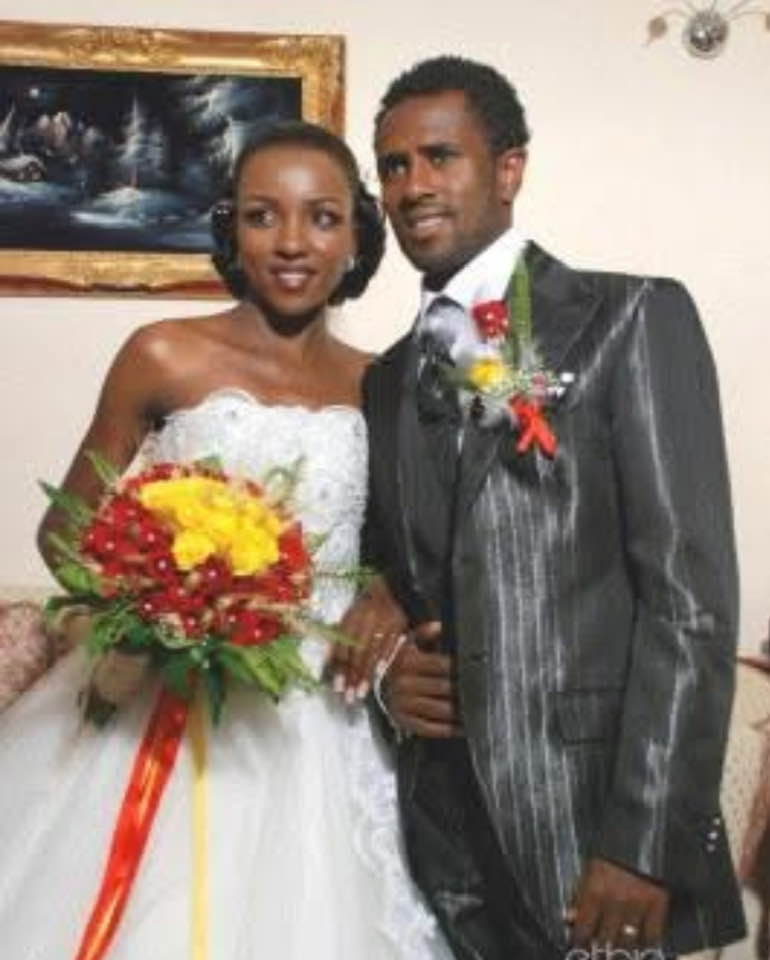
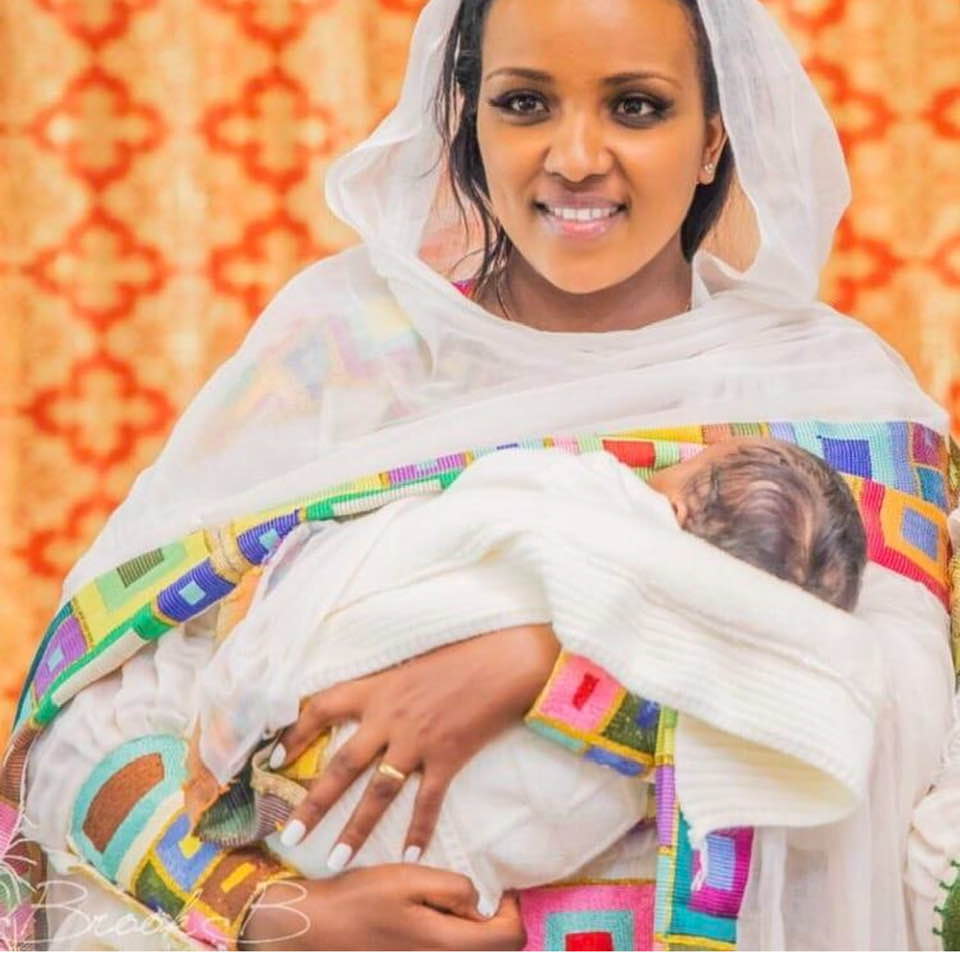
Genzebe who was born on 8 February 1991 is the woman with the most World records in track history, having a haul of four, plus two world bests.
She is a Rio 2016 Olympics 1500m silver medalist, 2015 World Champion in the 5000m event, the current World record holder in the indoor one mile, 3000m and 5000m events, and has World Best times in the indoor 2000m and two miles.
In addition, she is a five-time world indoor champion in the 1500m and 3000m from 2012-2018, a 2015 Diamond League champion, and won numerous medals at the junior level.
Genzebe is one of only three athletes in history to break three world records in three different events within 15 days, joining Jesse Owens, who set three world records and tied another within 1 hour, and Usain Bolt. She stands alone as the only one to do this feat in three different cities and meets.
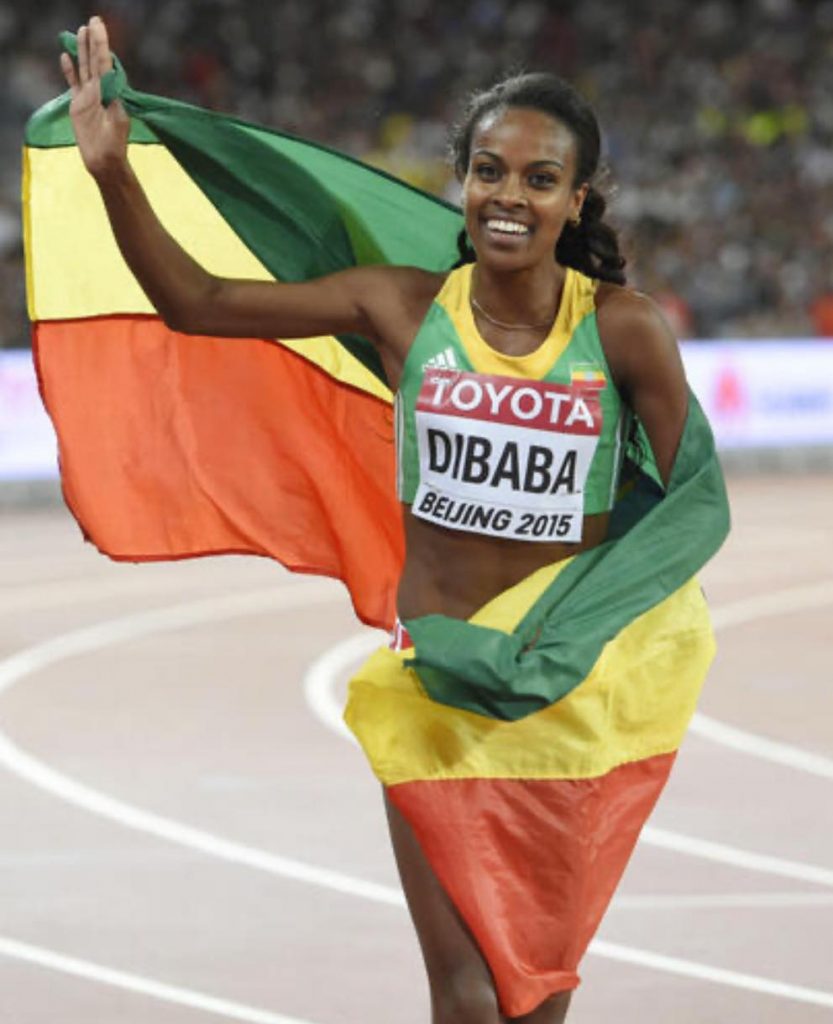
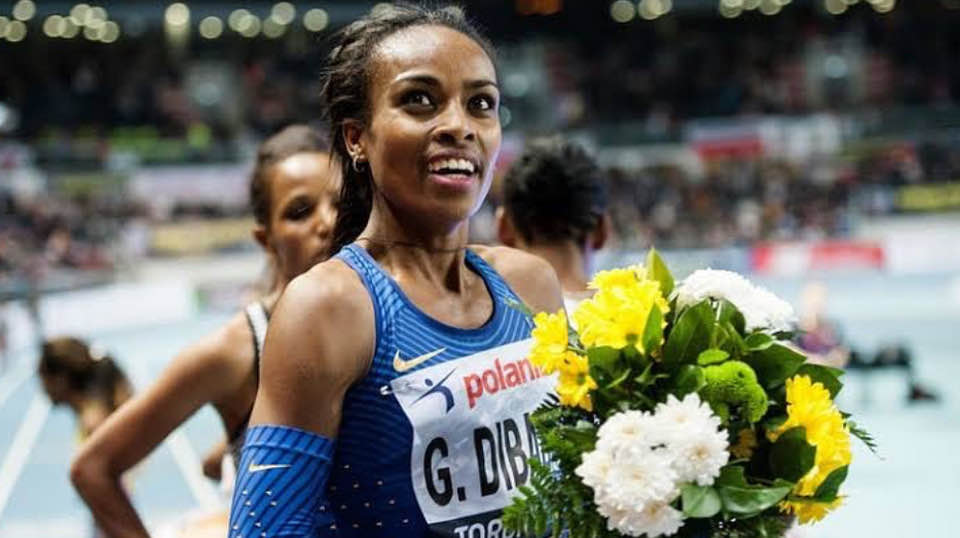
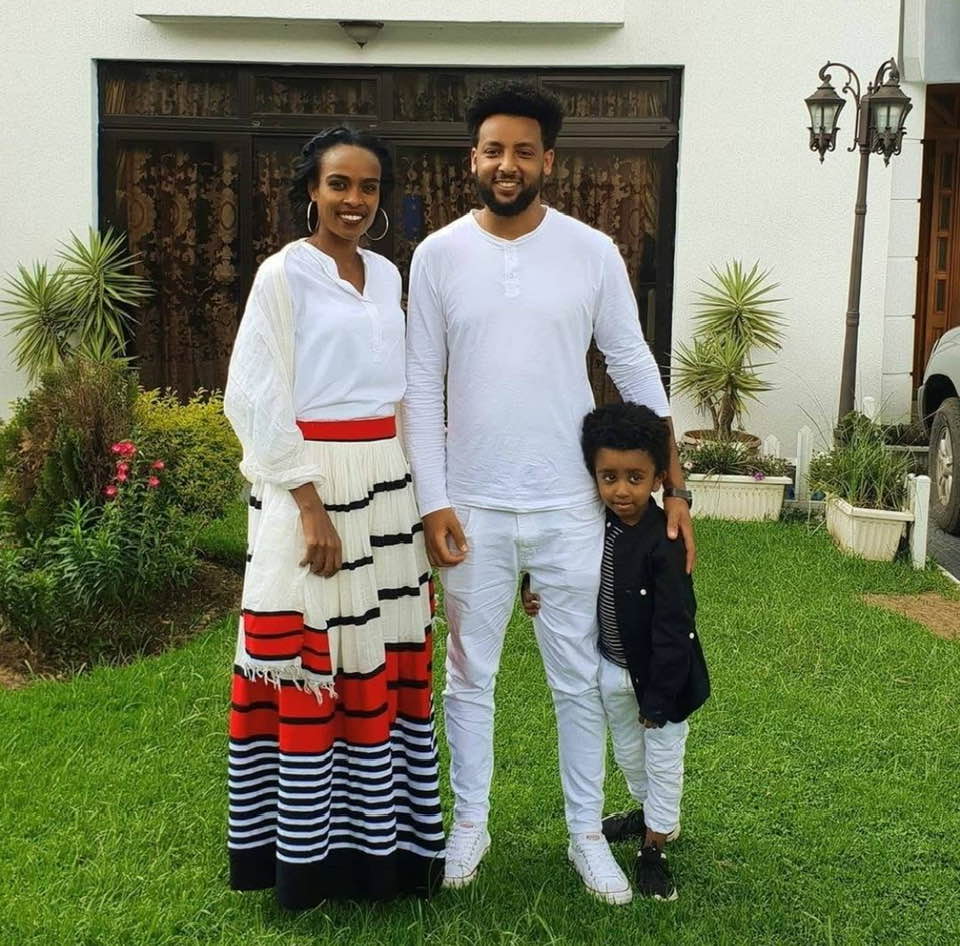
Ejegayehu Dibaba being the eldest child of the seven siblings, the other three sisters, Dejene, Anna and Melat, and the only boy in the family, Dereje are also upcoming athletes. The youngest of the family Anna 24, finished second behind Genzebe, at a 5km road race in Barcelona, Spain In December 2020, Melat Dibaba is also currently pushing to keep the flame of the family’s dominance in the world of athletics alive and Dereje is already marked as a future star of marathon racing.
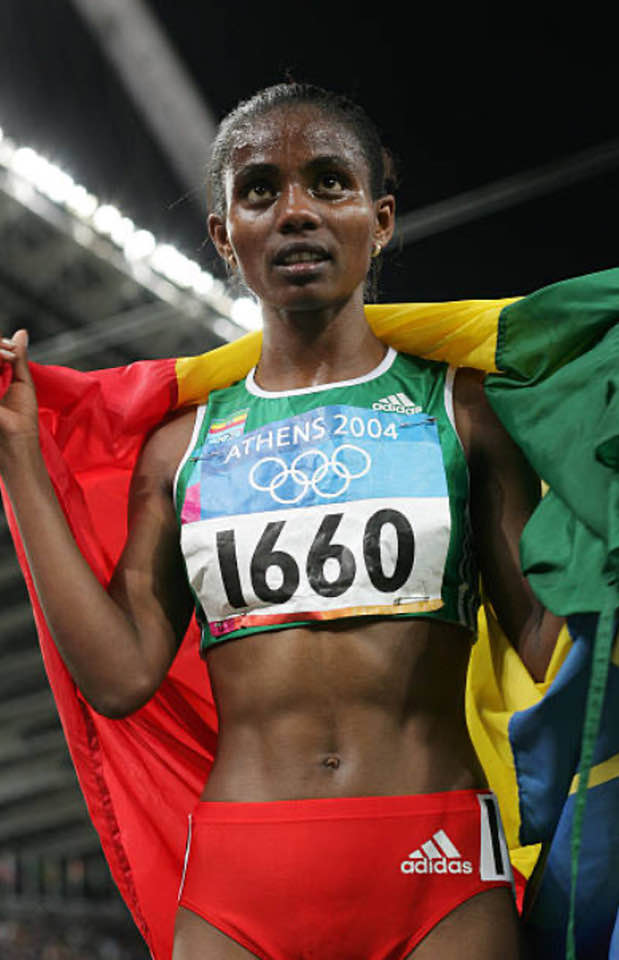
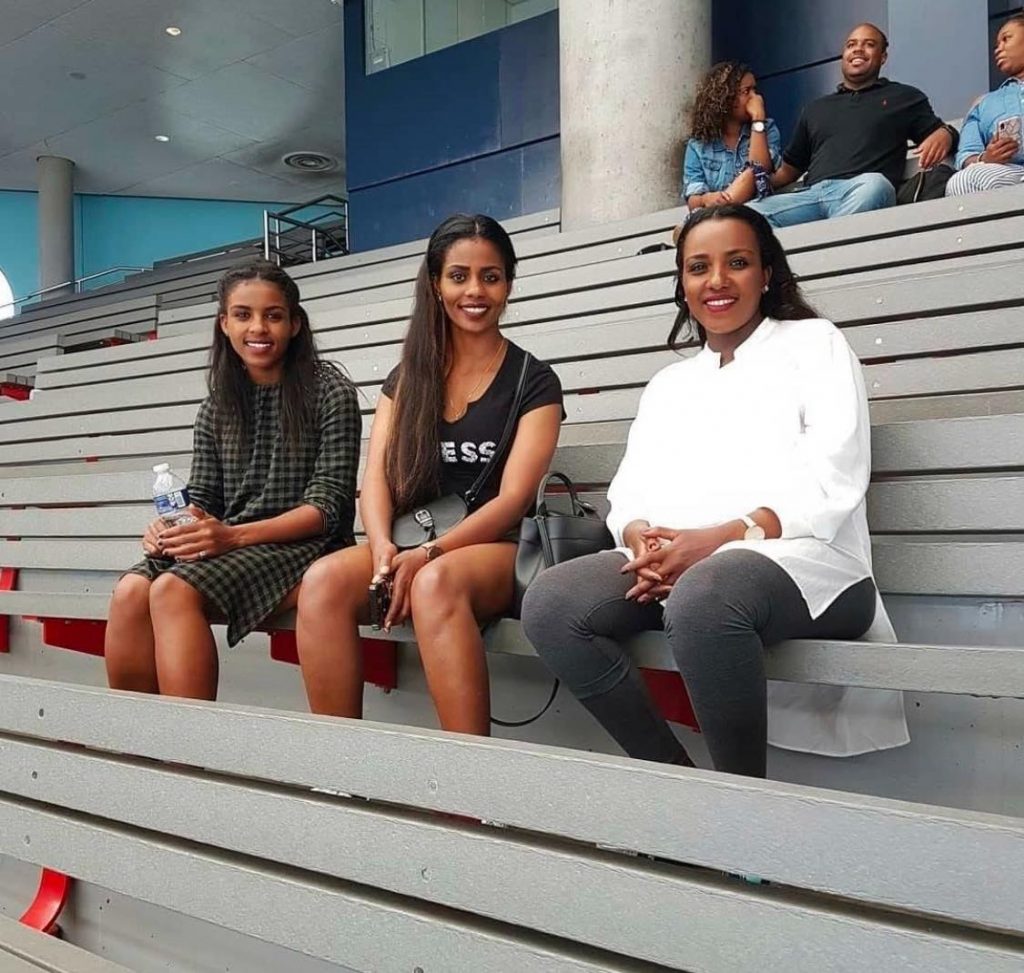
Apparently the sisters seem to intentionally want to turn their family to an everlasting athletics dynasty through marriage, for instance Tirunesh Dibaba got married to the love of her life and childhood friend, a two-time Olympic 10000m silver medallist Sileshi Sihine in October 2008 in a spectacular two-week long wedding ceremony in Addis Ababa, Ethiopia to make a strong statement in this regard.
Their’s is a very compact family. Though Tirunesh, Genzebe, and Ejegayehu are all married away, the Dibabas still train together as they clock up to 30km every day. They run around the Entoto forest weekly to test their stamina so that they can remain in shape. Mount Entoto is the highest peak on the Entoto Mountains, which overlooks the city of Addis Ababa, the capital of Ethiopia. It reaches 3,200 meters above sea level, this high altitude is so ideal for their training regimes.
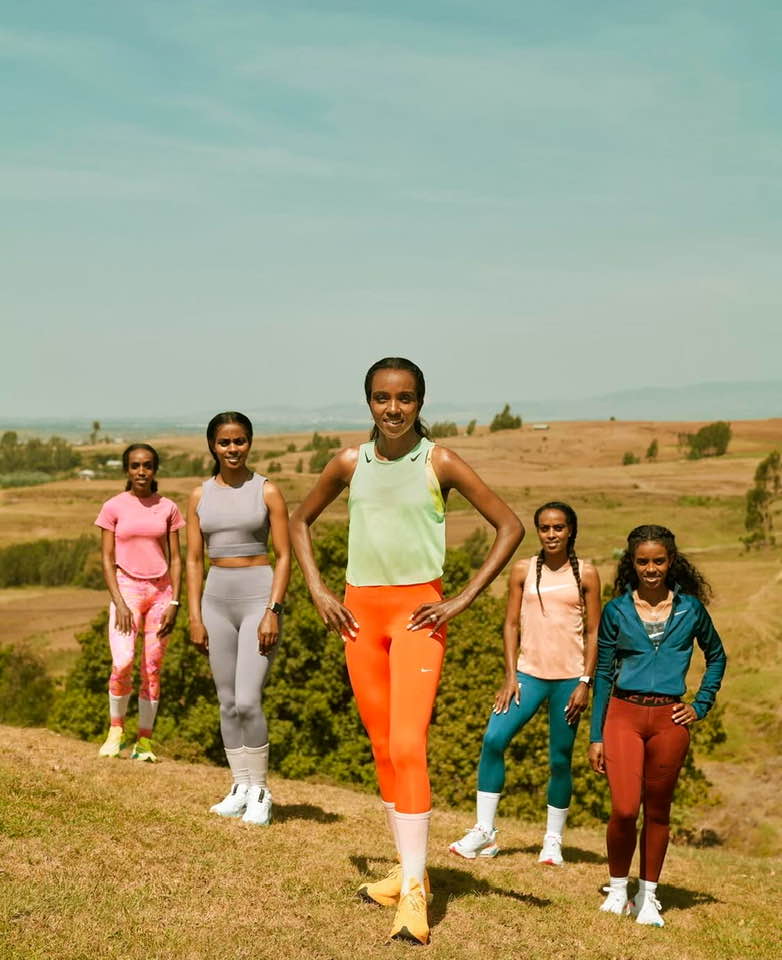
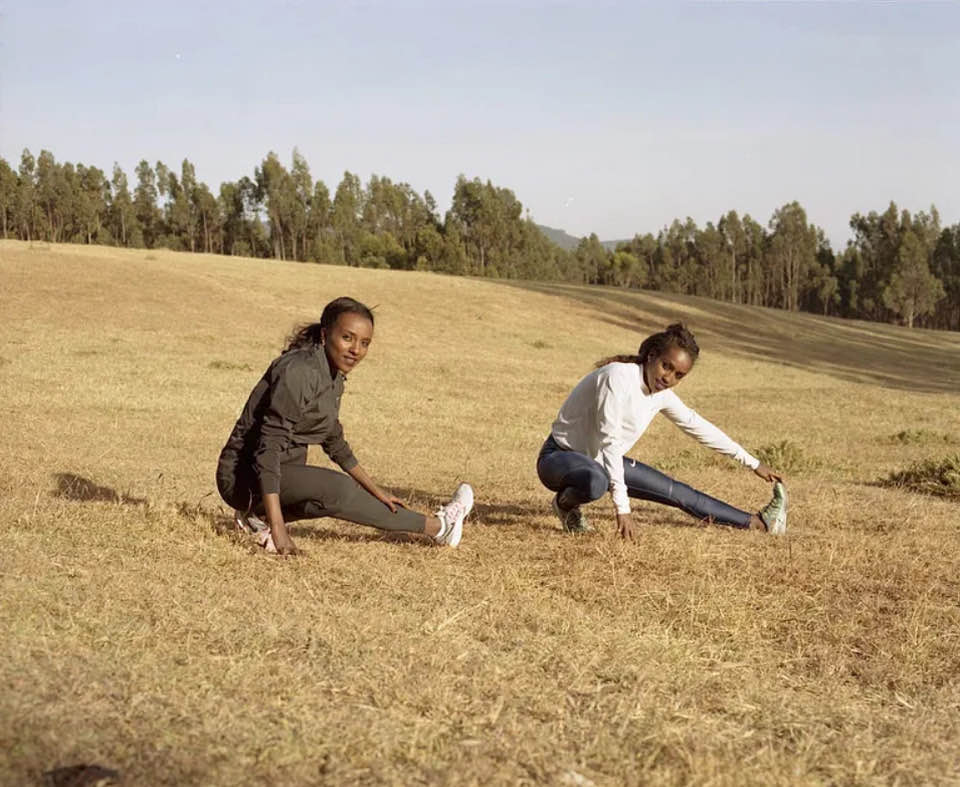


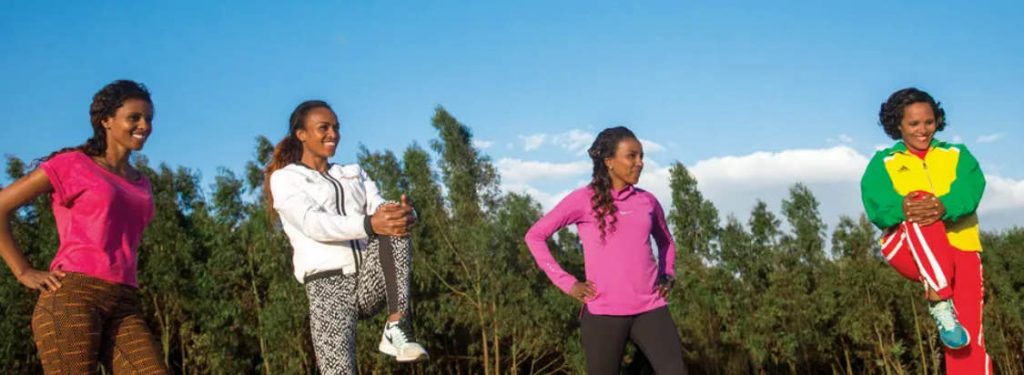
“What the Dibabas have is what Serena and Venus have, except there are more of them,” said NBC track analyst and the 200m world champion at Athens 1997, Ato Boldon of Trinidad and Tobago. He adds, “It’s not a stretch to say they are the world’s fastest family. “World records, Olympic medals, world championships—the Dibabas’ accomplishments are unprecedented in this sport.”
Is there something in the DNA of these sisters?, or is it the geography of the Entoto mountains that makes difference?.
Their mother, Gutu Dibaba, told Vogue that she attributes the Dibaba sisters’ success to a loving environment as well as a steady supply of milk from the family cows.
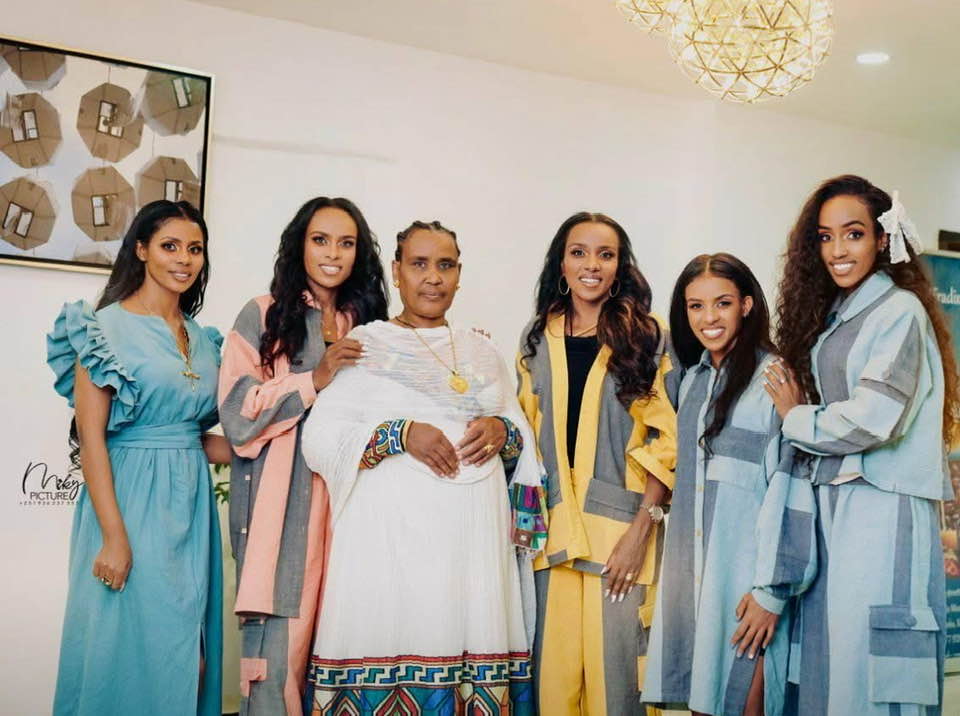
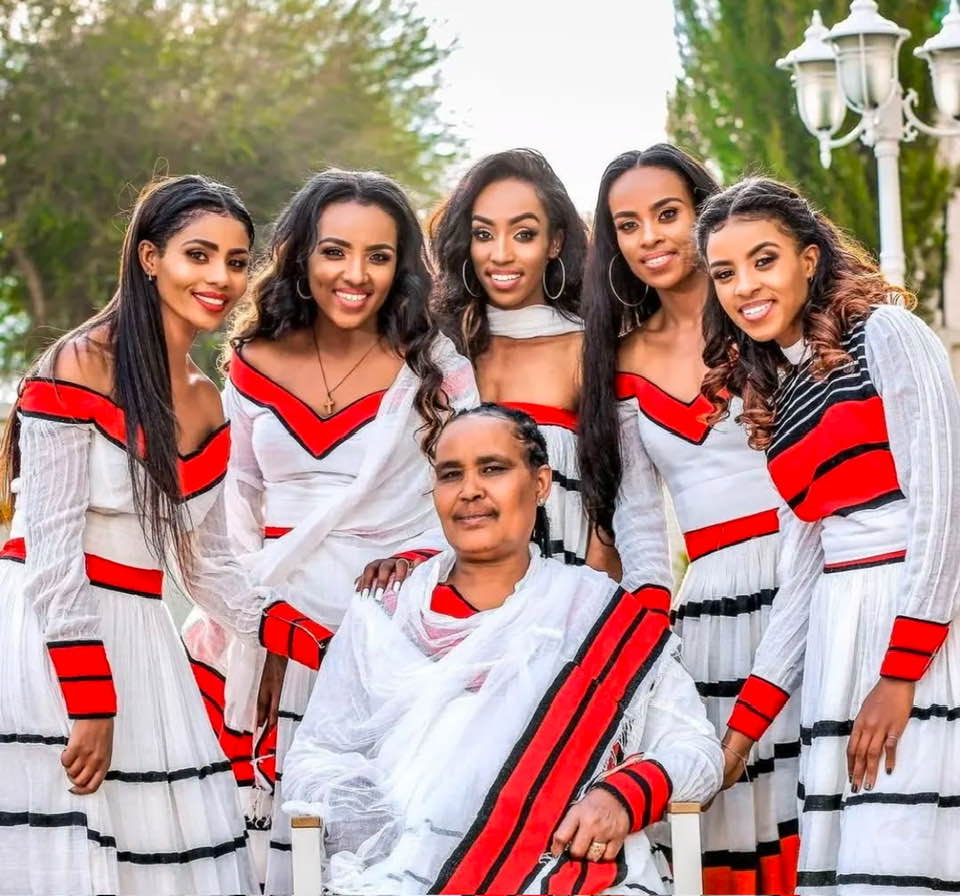
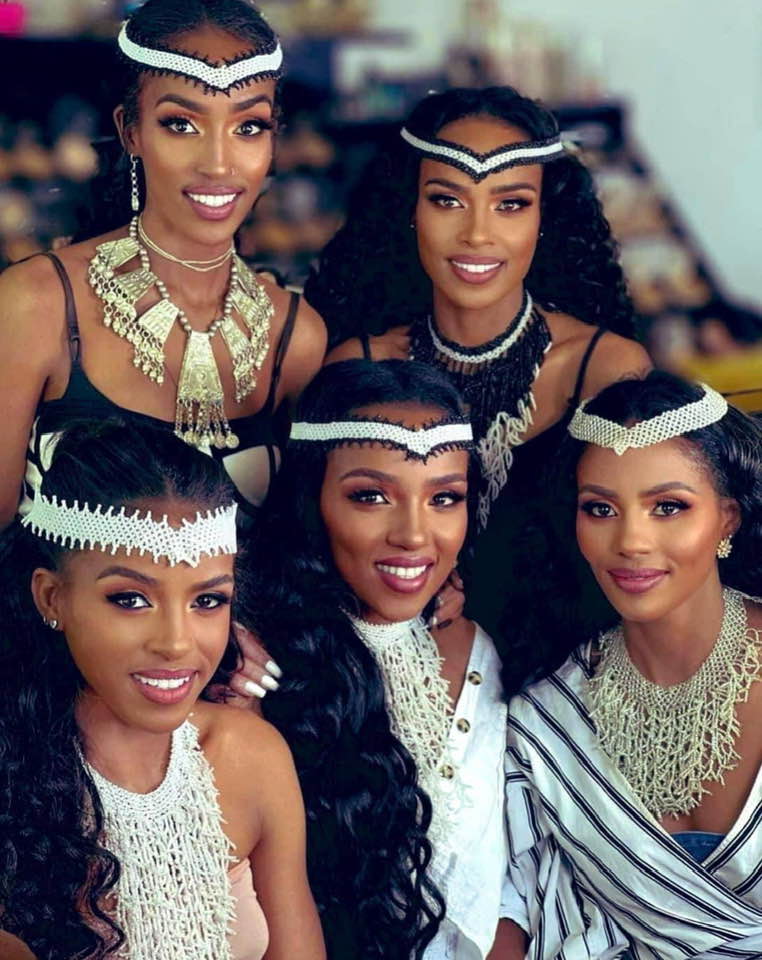

Could this nutritional regime also be their secret?
Harvard biologist Daniel Lieberman, who studied the evolution of running, said it was impossible to quantify — “it’s a mixture of factors like nutrition, training, culture, biology, and the runner’s determination”.
“Although it is clear that living and training at high altitudes results in a variety of physiological adaptations but the exact nature and relative importance of these adaptations to the success of athletes from these altitude areas are yet to be fully established”.
Today, the names of the Dibabas echo through Olympic arenas and the annals of world records, but their greatest triumph was not simply the medals—they rewrote what it means to be born with nothing. From the cracked soil of Bekoji rose a dynasty that turned endurance into legacy, and pain into power. The Dibaba sisters ran from hunger, from silence, from invisibility—and in doing so, they carried not just themselves, but an entire nation’s hope across finish lines. In their story, we find the truth that greatness is not a gift—it is a rebellion against despair. And in every stride of every race, they remind the world; That their incredible rise from a Tukul (mud house) in rural Ethiopia to world-renowned athletes and real estate investors is a story of hope, perseverance, and impact.
Through athletics, they broke the cycle of poverty not only for themselves but also for their family and community. Their transition into real estate was not just a smart investment move—it became a way to give back. By developing housing projects, they’ve helped address accommodation challenges faced by many low-income Ethiopians, turning their success into a source of opportunity for others. Their legacy now extends beyond the track, building both homes and hope for a better future. Even in the harshest soil, something divine can bloom.
References:
- ‘The Queen Of Sheba’ By Michael Wood for BBC. 17 February 2011
- Ancient Ethiopia by David Phillipson (British Museum Press, 1998)
- “Tiny town that breeds Olympic champions” by Teo Kermeliotis and Jessica Ellis for CNN. The December 18, 2014.
- Special feature: meet the Dibabas. By Haileegziabher Adhanom for Voiced Athletics magazine. September 16, 2020
- Meet the Dibaba sisters: The fastest family on earth from Ethiopia. By Mitti Hicks. Nov 9, 2021
- Dibaba Sisters: The world’s fastest and most beautiful family in history with multiple Olympic medals and World Records. By Funmilayo Fameso for Pulse Sports. 08 October 2024.
Please subscribe to Moor sportz’ YouTube channel following this link https://youtube.com/@moorsportz?si=xK5h6o6Lu7xUC3q2
You can also find us on the Twitter
Please note that we don’t have the copyright ownership of the pictures here.
Contributions from Niyi Akinola | Story edited by Niyi Akinola


